Dealing with a squirrel problem? You’re not alone! Squirrels are among North America’s most common wildlife pests. While these clever creatures might look cute, they can cause significant damage to your property. This guide explores the best squirrel traps and provides everything you need to know about humanely catching and relocating these persistent rodents.
Quick Picks: Best Squirrel Traps of 2025
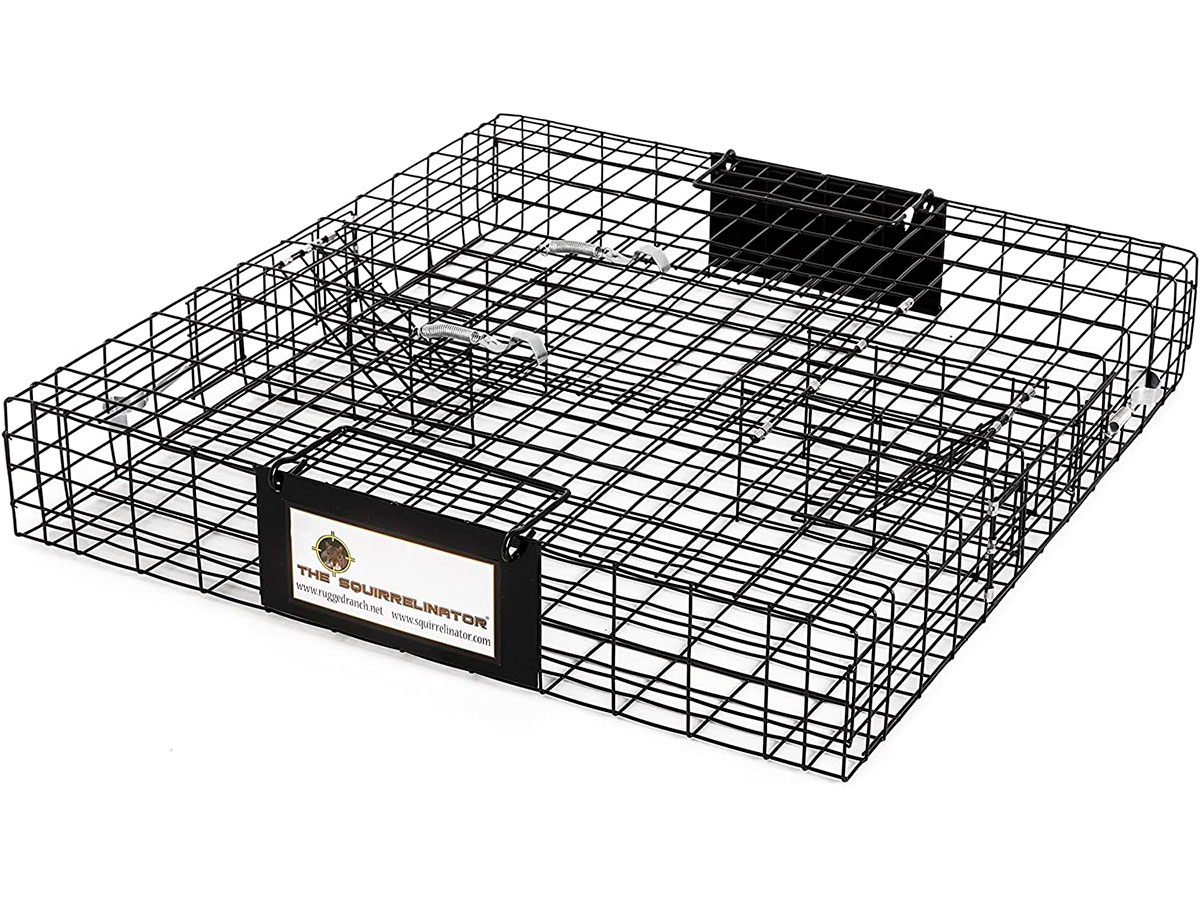
Editor’s Choice
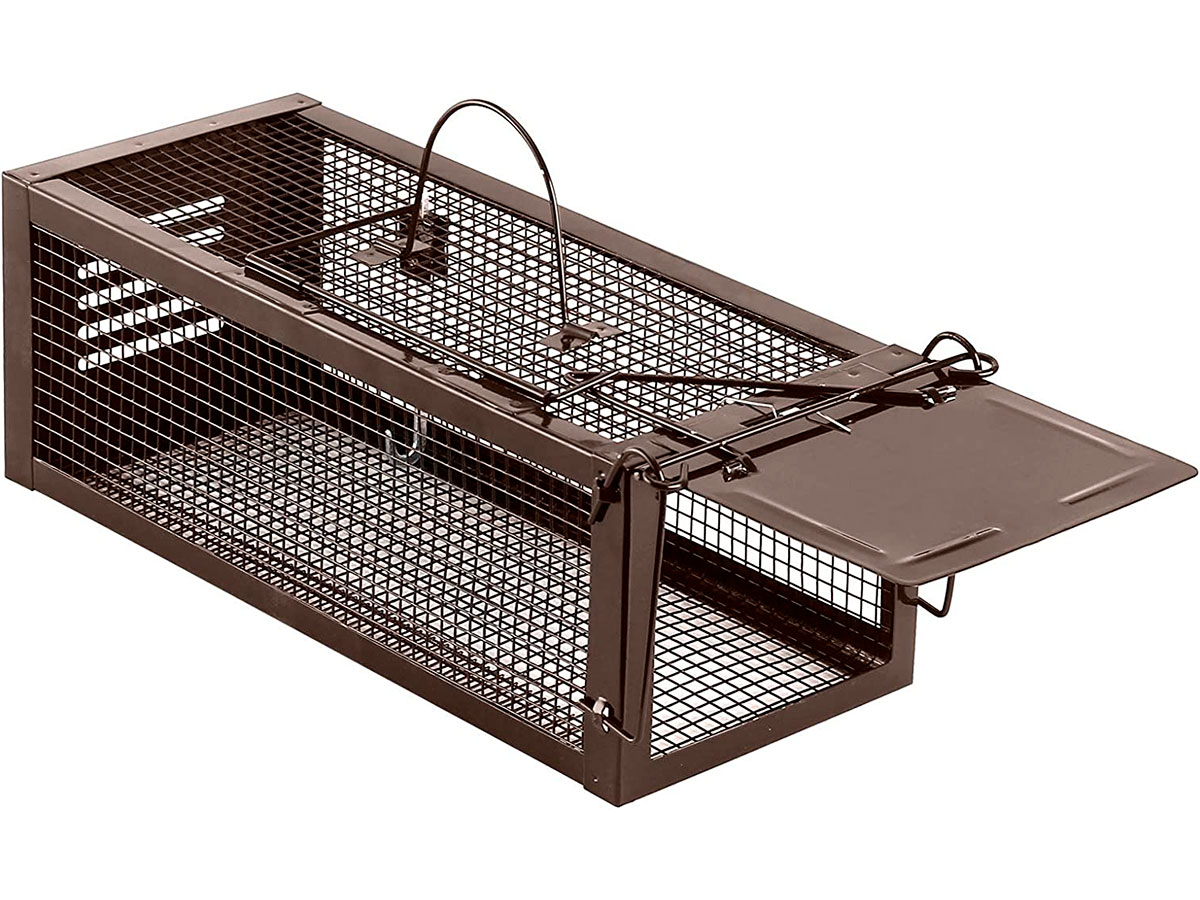
Best Budget
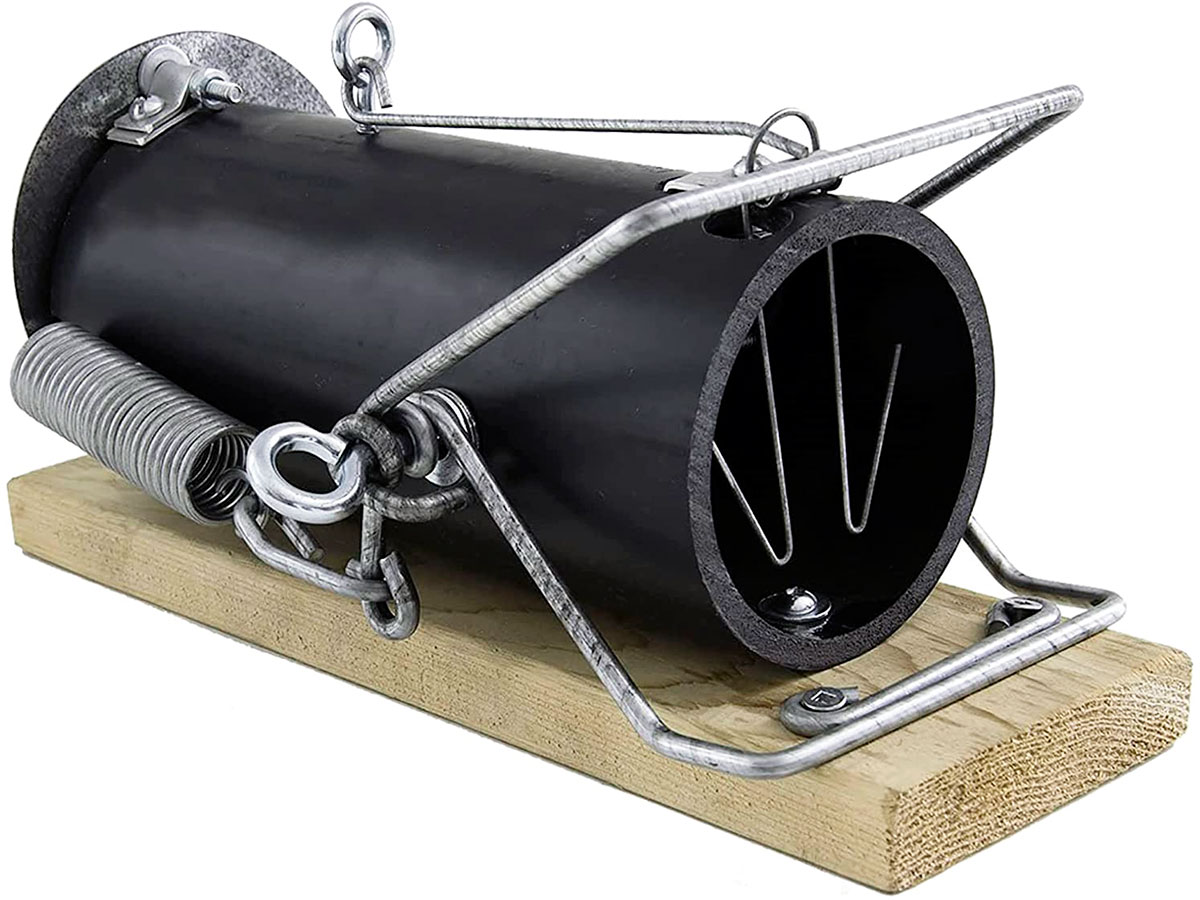
Best for Attics
Understanding Squirrel Problems
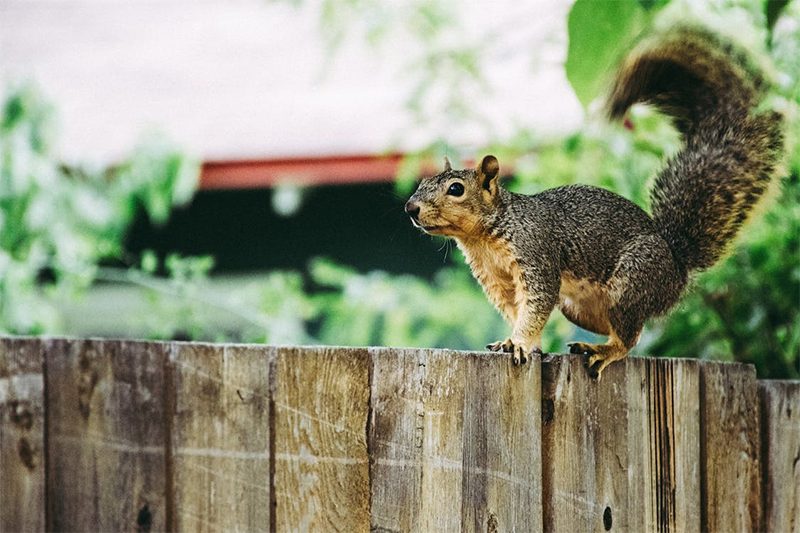
Squirrels may seem harmless, but they can create significant issues for homeowners. These agile rodents can damage your property by chewing through wires (creating fire hazards), digging up gardens, nesting in attics, and even causing structural damage to your home over time.
Property Damage
Squirrels can chew through electrical wiring, insulation, and even wooden structures, potentially causing fires and expensive repairs.
Garden Destruction
They dig up flower beds, eat vegetables and fruits, and can destroy landscaping you’ve worked hard to maintain.
Disease Carriers
Squirrels can carry parasites, ticks, fleas, and other disease vectors that pose health risks to humans and pets.
The good news is you don’t need to resort to harmful methods to solve your squirrel problem. Humane trapping offers an effective way to remove these pests without causing harm, allowing you to relocate them away from your property.
Top 3 Best Squirrel Traps of 2025 Reviewed
After extensive testing and research, we’ve identified the three most effective squirrel traps currently available. Each offers different benefits depending on your specific situation and needs.
Rugged Ranch Squirrelinator Trap
Editor's ChoiceHow Does It Work
How to Use
- Place the trap in areas with high squirrel activity, preferably on flat ground.
- Bait the interior with nuts, seeds, or fruit.
- Check the trap regularly (every few hours) to ensure captured animals don't become stressed.
- Wear protective gloves when handling the trap to avoid potential bites.
- Release captured squirrels at least 5 miles from your property to prevent their return.
- Can catch up to 25 squirrels at once, saving time and effort
- Durable metal construction ensures longevity
- Humane live-catch design
- Large size makes it suitable for various squirrel species
- No moving parts to malfunction
- Larger footprint requires more space for placement
- More expensive than single-catch traps
- May be too large for tight spaces like attics
RatzFatz Catch and Release Humane Cage Trap
Best BudgetHow Does It Work
How to Use
- Place the trap along squirrel pathways or near entry points to your home.
- Bait with peanut butter, nuts, or fruits placed at the far end of the trap.
- Set the trigger mechanism according to the instructions.
- Check the trap at least twice daily to minimize stress to captured animals.
- Transport and release captured squirrels at least 5 miles from your property.
- Affordable price point makes it accessible for most homeowners
- Compact size works well in tight spaces
- Sensitive trigger ensures reliable catches
- Durable galvanized iron construction
- Humane design with adequate ventilation
- Only catches one squirrel at a time
- Smaller size may not be suitable for larger squirrel species
- May require more frequent checking than larger traps
Ouell 3-10 High Performance Snap Trap
Best for AtticsHow Does It Work
How to Use
- Place traps in attics, along walls, or in areas with visible squirrel activity.
- Bait with peanut butter, nuts, or seeds in the designated bait cup.
- Set the trap according to the manufacturer's instructions.
- Check traps regularly and dispose of captured squirrels appropriately.
- Clean and reset traps as needed for continued protection.
- Compact design works well in confined spaces
- Durable plastic construction resists corrosion
- Easy to set with minimal risk of injury
- Effective trigger mechanism ensures reliable catches
- Can be used both indoors and outdoors
- Not a live-catch option
- Requires more careful handling than live traps
- May not be suitable for those seeking only humane solutions
Squirrel Trap Buyer’s Guide for 2025
Choosing the right squirrel trap depends on several factors including your specific situation, budget, and preferences regarding humane removal. This buyer’s guide will help you make an informed decision.
Types of Squirrel Traps
| Trap Type | Best For | Pros | Cons |
|---|---|---|---|
| Live Multi-Catch Traps | Large infestations, humane removal |
|
|
| Single-Catch Live Cages | Individual captures, budget options |
|
|
| One-Way Exclusion Doors | Attics, enclosed spaces |
|
|
| Snap Traps | Quick resolution, inaccessible areas |
|
|
Always check local laws and regulations regarding wildlife trapping and relocation before purchasing any trap. Many jurisdictions have specific requirements or restrictions.
Key Features to Consider When Buying a Squirrel Trap
- Size and Weight Ensure the trap is appropriate for the squirrel species in your area. Gray squirrels need larger traps than red or flying squirrels.
- Construction Material Look for durable materials like galvanized metal that resist rust and withstand chewing. Plastic traps should be thick and reinforced.
- Trigger Sensitivity A sensitive trigger mechanism ensures consistent captures without false triggers.
- Door Mechanism Gravity-operated doors are often more reliable than spring mechanisms that can fail.
- Ease of Setting Choose traps that are easy to set without risking injury to yourself.
- Humane Design For live traps, ensure adequate ventilation and space for the animal.
- Price vs. Quality Investing in a higher-quality trap often pays off in durability and effectiveness.
How to Effectively Trap Squirrels
Successfully trapping squirrels requires more than just setting a trap and hoping for the best. Follow these expert tips to maximize your chances of success.
Placement
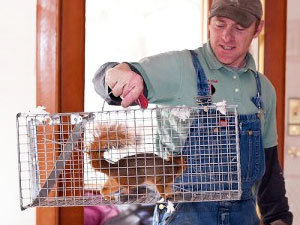
- Position traps along known squirrel pathways
- Place near entry points to your home
- Set traps on stable, level surfaces
- Keep away from children and pets
Baiting
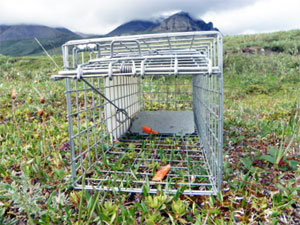
- Use peanut butter, nuts, or seeds
- Place bait at the far end of trap
- Create a “trail” of bait leading into trap
- Refresh bait regularly
Monitoring

- Check traps every 2-3 hours
- Never leave traps unattended overnight
- Provide water during hot weather
- Reset traps promptly after captures
Best Baits for Squirrel Traps
The right bait can significantly increase your trapping success. Squirrels are primarily attracted to nuts, seeds, and sweet foods. Here are the most effective options:
| Bait Type | Effectiveness | Best For | Notes |
|---|---|---|---|
| Peanut Butter | ★★★★★ | All traps | Strong aroma, difficult to steal without triggering trap |
| Unsalted Nuts | ★★★★☆ | Live traps | Natural food source, highly attractive to squirrels |
| Sunflower Seeds | ★★★★☆ | Any trap | Affordable and highly effective |
| Apple Slices | ★★★☆☆ | Live traps | Provides hydration but spoils quickly |
| Squirrel Butter | ★★★★★ | Professional use | Commercial product specifically formulated for squirrels |
Relocating Captured Squirrels
If you’re using live traps, proper relocation is crucial for both the squirrel’s welfare and to prevent their return to your property.
- Choose an appropriate release location – Wooded areas with water sources and natural food are ideal. Avoid releasing near other residential areas.
- Handle with care – Wear thick gloves when handling traps to prevent bites or scratches.
- Transport safely – Cover the trap with a towel during transport to reduce stress to the animal.
- Release promptly – Don’t keep squirrels trapped longer than necessary.
- Check regulations – Some areas prohibit relocating wildlife; verify local laws before proceeding.
Preventing Future Squirrel Problems
Trapping is only part of an effective squirrel management strategy. To prevent future infestations, you’ll need to make your property less attractive and accessible to these persistent rodents.
Squirrel-Proofing Your Property
- Trim tree branches that come within 10 feet of your home
- Seal all potential entry points (gaps, holes, vents) with steel mesh or metal flashing
- Install chimney caps and vent covers
- Keep food sources secure (bird feeders, pet food, gardens)
- Remove fallen fruits and nuts from your yard regularly
- Consider installing squirrel baffles on bird feeders and poles
When to Call a Professional
While DIY trapping is effective for many situations, some circumstances warrant professional assistance:
- Large infestations that are beyond the capacity of a few traps
- Difficult-to-access areas like high roofs or deep attic spaces
- Structural damage that requires repair along with removal
- Recurring problems despite your best efforts
- Lack of time to monitor traps properly
Professional wildlife control services have specialized equipment, experience, and knowledge of local regulations that can make the process more efficient and effective.
Frequently Asked Questions
Will rat traps work on squirrels?
While traditional rat traps can technically catch smaller squirrels, they’re not recommended for squirrel control for several reasons:
- They may not be strong enough for larger squirrels
- They’re less humane than proper squirrel traps
- They’re more likely to cause injury without effectively trapping the squirrel
It’s better to invest in traps specifically designed for squirrels to ensure both effectiveness and more humane treatment.
Is it illegal to release a trapped squirrel?
Regulations vary significantly by location. There are generally three types of laws regarding wildlife relocation:
- Permitted as long as the animal remains on your property
- Allowed on public land or private property with permission
- Completely prohibited without special permits
Always check with your local wildlife agency or department of natural resources before relocating any trapped animals. Violating wildlife regulations can result in significant fines.
Are poison baits effective for squirrel control?
Poison baits are not recommended for squirrel control for several important reasons:
- They pose significant risks to children, pets, and non-target wildlife
- Many rodent populations have developed resistance to common poisons
- Poisoned squirrels may die in inaccessible areas, causing odor problems
- Most jurisdictions have strict regulations on poison use for wildlife
- Humane alternatives like trapping are more effective and ethical
Recent legislation in many areas has further restricted the use of rodenticides due to their environmental impact and secondary poisoning risks.
How long can a squirrel survive in a live trap?
Squirrels are high-metabolism animals that can become stressed quickly in confinement. During moderate weather, a squirrel should not be left in a trap for more than 2-3 hours. In extreme temperatures (hot or cold), this time should be significantly reduced.
Always check traps frequently and provide water during hot weather to prevent suffering. Never leave traps unattended overnight or during extreme weather conditions.
What’s the difference between red, gray, flying, and ground squirrels?
Different squirrel species require slightly different trapping approaches:
- Gray Squirrels: Larger, requiring sturdier traps; common in urban and suburban areas
- Red Squirrels: Smaller and more aggressive; may need smaller trap openings
- Flying Squirrels: Nocturnal with the ability to glide; need traps with smaller mesh to prevent escape
- Ground Squirrels: Burrow in the ground; often require specialized traps placed near burrow entrances
Identifying the specific species causing problems will help you select the most appropriate trap and placement strategy.
Conclusion
Dealing with squirrel problems doesn’t require harmful methods or expensive professional services in most cases. With the right trap, proper placement, and consistent monitoring, you can effectively manage squirrel issues around your property.
Our top recommendation, the Rugged Ranch Squirrelinator Trap, offers the best overall solution for most homeowners with its multi-catch capacity and durable construction. For those on a budget, the RatzFatz Humane Cage Trap provides excellent value without sacrificing effectiveness. And for those dealing with squirrels in attics or other confined spaces, the Ouell 3-10 Snap Trap offers a practical solution.
Remember that successful squirrel management combines effective trapping with habitat modification and exclusion techniques. By taking a comprehensive approach, you can enjoy a squirrel-free property for years to come.
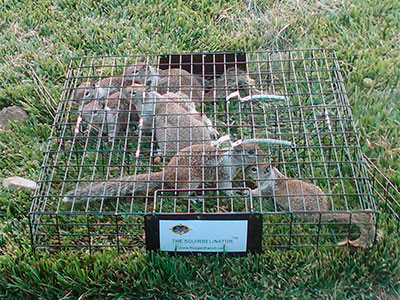
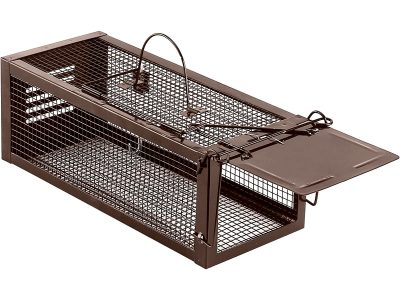
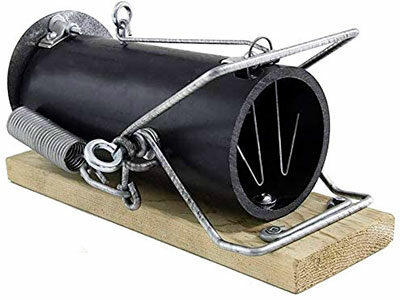
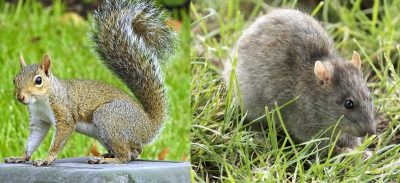
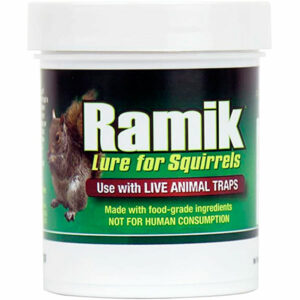
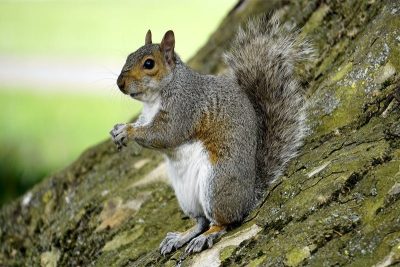

Squirrels are just rats with a nicer outfit……..lol
I have a squirrel that ate the wiring in my sons Honda Civic. It is costing
around 1400.00 to get it fixed. Insurance is covering it, but this is war!
Somehow it is picturesque to have an old man feeding the squirrels in a park, but not the rats.
a squirrel is just a rat with a long tail that climbs trees and creates havoc wherever they roam.
They kill baby birds need I say more.
And not to mention, they are DELICIOUS!!!!!!!!
Replaced garage door after they chewed the corners and got in the attached garage. Replaced 6 ft of fascia chewed in my home’s eves, both doors of my shed and 3 floor boards of my gazebo. They eat parts of apples from my tree and squirrel away rotten pieces everywhere. Neighbors feed them. I trap and kill every one I can. I have lost thousands to these pests. They are destructive disease carriers.
The squirrels go in the trap and eat the food. they set off the trap and then they manage to get out. I cant figure how they do it. Very frustrating.
please “get a life” people, it’s stupid people like you that America is in such a mess. Kill the vermin and all the stupid folks with them, wait, stupid folks will kill themselves, so just kill the vermin.
Rocket J Squirrel and Bullwinkle are gone! These things carry fleas that can kill your cat from the plague! One of these guys has already stripped my single apple tree. I have had it! Goodby mofo! Go chew on Hillaries emails.
To David Abbott, what kind of sauce would you say should be served with squirrel?
I trap the poor angels in a live trap and then give them a small dose of lead poisoning. 🙂 I agree that releasing them somewhere else gives someone else the problem.
I Saw On T.V. That 38 % Of Home Fires Are becuse They Eat The Electrical Wiring, And burn Down The Hose.
I live in liberal Boulder, CO where all the crazy, wilted flower children live. The majority of these folks will send a person to prison for hurting an animal. Good thing these rats are not animals! Trap em all, I say. They are killing all my large shade trees!!!
Over several years I have taken between 200-250 squirrels. The ones that are left don’t mind.
I use live traps such as the one above. The larger ones are better than the smaller. The ONE bait that works every time is whole pecans. They work by far the best in the spring of the year when squirrel foods are exhausted. You can’t go wrong with whole pecans. A couple in the back and a couple in the front.
I catch and release bekez I just got tired of shooting them. But if you must, quarter, chicken fry, then when crispy done add a cup of water and when the water is gone about 20 minutes later they are tasty and tender!
Just big rats with tails. Amen. I wanted to see why or if everyone actually releases them?
Squirrels are a good food source. You can boil them for 45 minutes and then remove their meat from the bone after cooling. You’ll get about 1/4 lb of meat that can be used in any recipe that calls for chicken. The taste is not that much different from poultry dark meat. Soak them a couple days in a light solution of salt water in the fridge before cooking to remove any gamy taste.
We had squirrels in the attic of our 110 year old house for several years because we like animals and were willing to tolerate them. This year the light went out (not the bulb) in one of the upstairs bedrooms so I (age 78) got a ladder and climbed through the tiny trap door to find several inches of bare copper wires leading to that light fixture plus a couple of other patches of bare wires. It cost us nearly $2000 dollars to have the squirrels trapped (12 of them) and the holes closed up. Now we have to pay an electrician to repair the wires. I am happy to share the planet with squirrels and even our house if they would not put our home and our lives at risk by chewing the insulation off electric wires in addition to chewing large holes in our wooden eaves. We will have to cover our eaves with steel as soon as we get the electrician paid off because there are many more squirrels out there who were born in our house and will return periodically to see if they can get in. Squirrels have 2 litters a year with 2 to 5 young per litter. Don’t delay removing squirrels from your home – they won’t go away on their own!!!
I have three squirrels in my fascia on the second floor. Can’t reach out myself. would like to DIY the problem, cause it’s a challenge!
Should I use more than 1 trap, or can I remove the pests 1 at a time successfully? How far away must I take the squirrel so it won’t return to my house?
Sue
The average squirell has a range of between 2and 5 square miles depending on species and location
Thank you, Chase A.
On Sat two of my loyal and ferocious mini doxxies killed one of the squirrels. They wetter so proud of themselves.
That’s 1 down.
Perhaps before I but the tap they will have done the service one in.
That would be a perfect solution.
Sure go ahead and release them far away so they can be someone Else’s problem. That is the responsible thing to do. How would you like it if someone was dumping them by your place?
@1000 miles. try death valley
MARIE-THERESE
Maybe if you had them living in your attic, or in the walls of your house you might feel different.
This is cruelty towards animals. A squirrel in the front or back yard doesnt bother anyone. Some humans are becoming maniacs wanting to get rid of every single animal. We are supposed to share the planet with all other creatures. They have been created before us by God for our goodness. So let them be!
You won’t feel that way when you have them destroying crops you depend on to feed your children.
Do you own a home. Probably not. Apartment dwellers don’t realize how much the pest destroy.
They are pests in some areas
really? maybe u should go outdoors and deal with them. i had them in my rural home and eventually bought cat’s to TERMINATE them after they berated me for blocking their entry. is that humane? know something about there behavior before u speak. If I had my shotgun I would terminate them from my my $50K RV without batting an eye. They r rats with tails and hardly. I dont allow the cattle on grazing leases to use my campsite either although they inderstand whem they r not wanted.
You have a point about a squirrel in a back yard not bothering anyone but my family grows and sells pecans and walnuts we can not afford the losses if we were to just.let squirells be squirells
My 88 year old mother in law just paid close to $1OOO. to have the wiring fixed on her car.
just wait till they destroy your property 4k between three cars. they’re lucky that only a trap is used!!!
Excuse me they carry diseases like Bubonic plague and rabies.
Cute huh
The squirrel(s) in my front/backyard is actually bothering us and damaging my property. They have completely destroyed our garden this year and have chewed on our deck, phone lines, grill and other things… so sorry that we are a specist.
You don’t get it. I have one pecan tree that puts off not very many nuts and I have been trying to get a few but the squirrels always get them first cause they don’t wait till the nuts are ripe. Hey, I do not mind sharing but I want the squirrels gone. Shoot them or trap them and release them far from home. What do you think I should do?
Yes they can be pesky for homeowners. They are running around all over in the attic. We’re afraid they’ll be nesting and also dropping excrement all over. No luck with the trap so far.
when you have a pecan tree and you use the pecans for food for your family, squirrels are a huge problem. as long as you eat the squirrels after shooting them, i dont see a problem with it. its called THE FOOD CHAIN.
When you spend $3000 to get your car rewired because of a squirrel chewing them you will change your tune
They gnaw 2-3 tomatoes in my garden every day. I go through the effort to prepare the soil, run water 100′ from the house and install drip irrigation, including a water filter to remove chlorine. Outdoor cats are a great solution, but we have a dog and my wife has vetoed that option. There are pests.